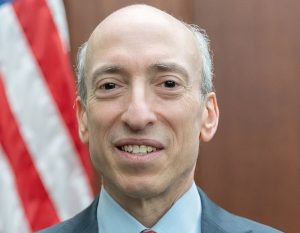In a watershed moment for the cryptocurrency world, the US Securities and Exchange Commission (SEC) on Wednesday greenlit the first-ever spot Bitcoin ETF, granting investors direct access to the world’s largest digital asset through regulated financial instruments.
However, the SEC’s approval was delivered with a dose of caution, highlighting the agency’s continued concerns about the nascent cryptocurrency market.
SEC Chair Gary Gensler acknowledged the significance of the decision, calling it “a new chapter” for Bitcoin, but he swiftly distanced the agency from any endorsement of the cryptocurrency itself.
Ark’s Wood Condemns SEC Chair
These funds should offer additional options for investors who want exposure to Bitcoin, but investors need to take care, Gensler warned, citing the “highly volatile and speculative nature” of Bitcoin and other crypto assets.
The cautious tone underscored the SEC’s balancing act – providing access to new investment avenues while safeguarding investors from potential risks.

SEC Chair Gary Gensler. Image: The Financial Technology Report
This stance drew mixed reactions.
Cathie Wood, founder of Ark Investment Management and a vocal Bitcoin proponent, welcomed the approval but criticized Gensler’s remarks, calling them a classic example of how the established system often reacts to disruptive innovation.
Wood said in a Bloomberg Radio interview aired on X:
“He just denigrated the whole crypto space. I couldn’t believe it.”
The Ark big boss added:
“This is par for the course in disruptive innovation.”
Wood, whose Ark Invest 21Shares Bitcoin ETF was also approved, expressed optimism about the long-term potential of this new chapter for Bitcoin.
While the immediate impact on Bitcoin’s price was modest, with a temporary bump to $47,000, the long-term implications of the ETF approval are significant.
BTC market cap currently at $913.167 billion. Chart: TradingView.com
With traditional financial institutions now holding the green light to invest in Bitcoin, the floodgates could open for a wave of institutional capital entering the crypto market. This influx could potentially stabilize Bitcoin’s price and bolster its legitimacy as a mainstream asset class.
Bitcoin ETF Launch Raises Regulatory Uncertainties
However, uncertainties remain. The success of these ETFs will hinge on their ability to attract substantial investor funds. Additionally, the SEC’s cautious approach, with its stringent custody requirements and potential for future regulatory tweaks, could deter some institutions from venturing into the crypto space.
The launch of the Bitcoin ETFs is just the first step in what promises to be a long journey for digital assets and their integration into the traditional financial system.
The SEC’s decision sets a precedent for future innovation in the crypto market, but it also serves as a reminder of the regulatory hurdles and investor safeguards that will need to be addressed as this new asset class evolves.
As Cathie Wood aptly stated:
“It’s the old DNA basically bashing the new DNA.”
Wood underlined that institutions should “work through” the new framework more thoroughly because of the SEC’s “trepidation” over it.
Featured image from The Inside Investor













